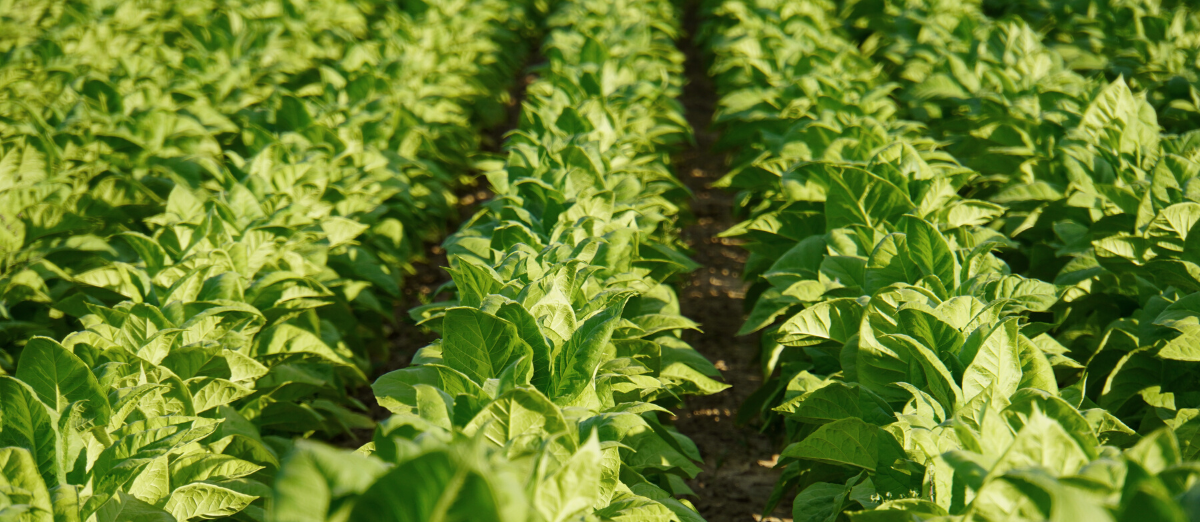Tobacco Update + Introducing a New Organization Supporting Tobacco Growers
Author(s): Will Snell
Published: January 30th, 2023
Shareable PDF
The 2022-23 tobacco marketing season is beginning to wind down following challenging growing/curing conditions for the 2022 crop. Buyers indicate that the subpar-quality crop turned out slightly better than expected. Grower prices will end up higher, but profitability will be lower given lower yields and inflated input prices. Consequently, a large number of the depleted grower base are indicating that they will likely exit the industry given more profitable opportunities for other ag enterprises. Our last official count from the 2017 Ag Census indicated around 2,600 farms growing tobacco in Kentucky in 2017. I would anticipate this number to hover around 1,000 farms when the 2022 Census data becomes available, with less than 1,000 farms remaining in the industry in 2023.
Despite a declining grower base, tobacco companies have had access to adequate leaf supplies in recent years to meet their needs in a shrinking market composed of ample lower-priced leaf alternatives and the introduction of many new “nicotine” products that contain limited or no tobacco leaf. However, burley tobacco supplies in the world market entering 2023 are extremely tight relative to anticipated demand. So I would anticipate that burley buyers will be offering the remaining growers an opportunity to increase their burley pounds in 2023 to accommodate tight inventories even as domestic cigarette volume declines accelerate and burley leaf exports plummet to negligible levels.
The fragile grower base who are currently contemplating their crop decisions for this coming year is eagerly awaiting to see what evolves with contract pricing for the 2023 burley crop. Frankly, without significant price increases across the board for the 2023 crop, I would expect a continued rapid exit of burley growers. After gathering cost and production data from several growers and obtaining 2023 input prices from ag input suppliers, University tobacco specialists from the University of Kentucky and the University of Tennessee plan to release 2023 tobacco budgets in February to assist growers in their 2023 production decisions and for buyers in making their 2023 contract pricing decisions.
Following a sustained period of optimism, the dark tobacco outlook has changed abruptly. Smokeless tobacco product sale volumes continue to grow, but traditional snuff product sales have been significantly impacted by the rapid expansion of alternative smokeless products which do not contain dark tobacco leaf Consequently, dark fire-cured contract volumes for 2023 may be lowered to adjust inventory levels, which may cause growers to consider cigar-style tobaccos as a viable substitute.
Amidst this changing marketplace, a new tobacco organization has emerged. Joe Cain, former Director of the Commodity Division and former Director of National Affair and Political Education with Kentucky Farm Bureau has become the Executive Director for the Burley and Dark Tobacco Producer Association. Below, Joe provides some background and goals for this new organization..
 The Burley and Dark Tobacco Producer Association (BDTPA) is a new tobacco grower organization that was organized following the dissolvement of the Burley Cooperative and is focused on representing all tobacco growers on government, regulatory and industry issues. The goal of the Association is to work on behalf of tobacco producers to address issues affecting the long term viability of the industry and profitability of producers. Any producer of any type of tobacco grown in the KY-TN-IN area is encouraged to join the Association. This includes producers of leaf, seed or seedlings. Any grower association is strongest when a majority of producers are active members, and the BDTPA hopes all growers in the region see the value in being members of the Association. Joining is easy, and free. Producers can join the Association by emailing Joe Cain, BDTPA Executive Director, at KYTobaccoGrowers@Outlook.com or by calling him at (502) 303-3663 (please be sure to leave a message if the call is not answered) and providing the following information: Name, mailing address, email address, telephone number and type of production. The Association will be sending quarterly email newsletters to membership on industry news, production practices and government issues, and if necessary will send out special bulletins if the need arises. Most correspondence is planned via email, but if the producer does not have email we can provide text updates, or physically mail information to them. The BDTPA looks forward to “Working together for ALL tobacco producers.” Joe Cain, Executive Director, Burley and Dark Tobacco Producer Association
The Burley and Dark Tobacco Producer Association (BDTPA) is a new tobacco grower organization that was organized following the dissolvement of the Burley Cooperative and is focused on representing all tobacco growers on government, regulatory and industry issues. The goal of the Association is to work on behalf of tobacco producers to address issues affecting the long term viability of the industry and profitability of producers. Any producer of any type of tobacco grown in the KY-TN-IN area is encouraged to join the Association. This includes producers of leaf, seed or seedlings. Any grower association is strongest when a majority of producers are active members, and the BDTPA hopes all growers in the region see the value in being members of the Association. Joining is easy, and free. Producers can join the Association by emailing Joe Cain, BDTPA Executive Director, at KYTobaccoGrowers@Outlook.com or by calling him at (502) 303-3663 (please be sure to leave a message if the call is not answered) and providing the following information: Name, mailing address, email address, telephone number and type of production. The Association will be sending quarterly email newsletters to membership on industry news, production practices and government issues, and if necessary will send out special bulletins if the need arises. Most correspondence is planned via email, but if the producer does not have email we can provide text updates, or physically mail information to them. The BDTPA looks forward to “Working together for ALL tobacco producers.” Joe Cain, Executive Director, Burley and Dark Tobacco Producer Association
Recommended Citation Format:
Snell, W. “Tobacco Update + Introducing a New Organization Supporting Tobacco Growers." Economic and Policy Update (23):1, Department of Agricultural Economics, University of Kentucky, January 30th, 2023.
Author(s) Contact Information:
Will Snell | Extension Professor | wsnell@uky.edu
Recent Extension Articles
Warm Welcome to Dr. Grant Gardner
January 30th, 2023
Dr. Grant Gardner was born and raised on a corn and soybean operation in southwestern Indiana. He received his B.S. in Agribusiness from Purdue University in 2017. He subsequently received his M.S. and Ph.D. in Agricultural Economics from the University of Nebraska-Lincoln and Kansas State University in 2019 and 2022, respectively.
Kentucky Sales Tax on Utilities
Jerry Pierce | January 10th, 2023
A legislative change was made to the qualifications for residential use exemption from sales tax on utilities. Effective January 1, 2023, the resident at a specific service address is responsible for declaring it as their place of domicile and the utility services exempt for residential use. Kentucky sales tax will be charged for utility services furnished to any location that is not your place of domicile, even if it was formally classified as residential.




